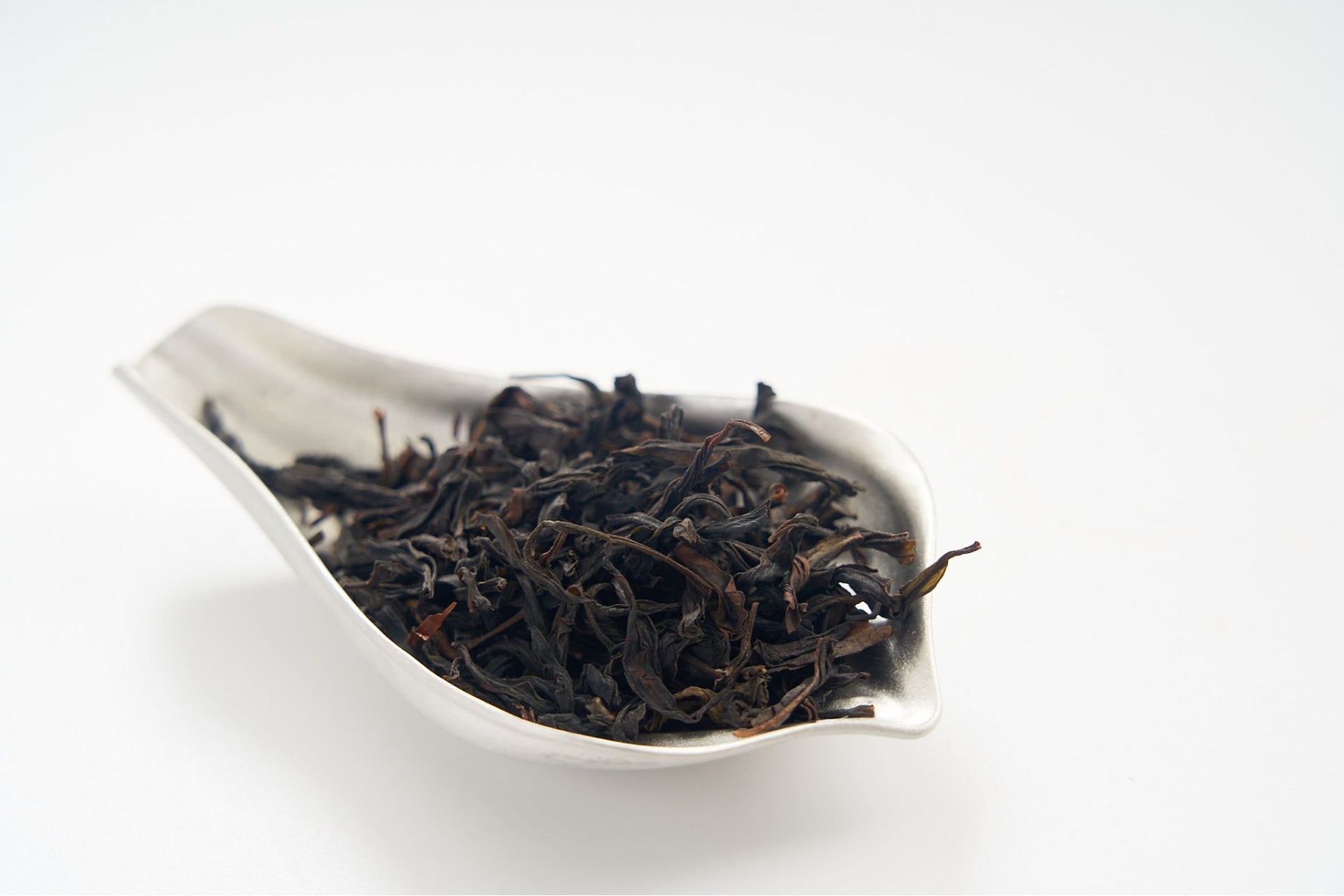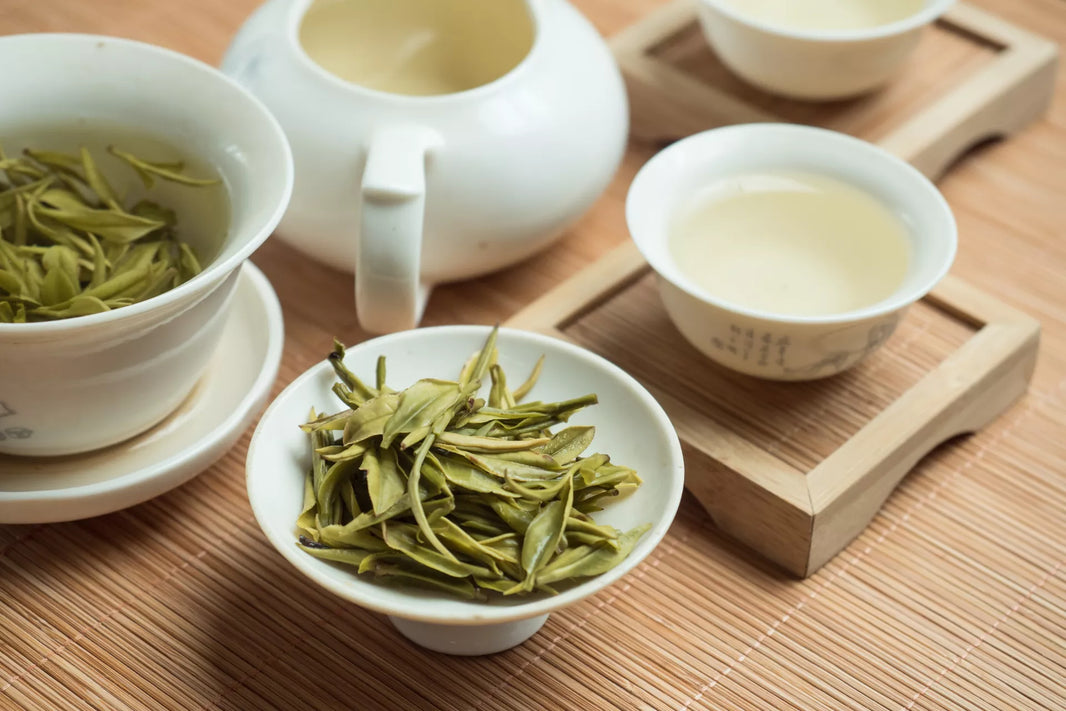Oolong is an ancient Chinese brew, made from the partially oxidized leaves of the Camellia sinensis plant. And it has a surprisingly rich array of health benefits.
Here are 17 inspiring ways this tea can boost your health:
1. Rich Source of Antioxidants
Oolong tea contains helpful antioxidants like theaflavins, thearubigins, and EGCG. These compounds help protect your cells from oxidative stress. Because oolong is only partly oxidized, its antioxidant levels fall between green and black tea and may vary based on how it’s processed.
2. Supports Heart Health
Oolong tea contains polyphenols that may support heart health by helping maintain healthy cholesterol levels and supporting good circulation. Most research is observational, so it cannot be considered a treatment for heart conditions, but it can be part of a heart-friendly lifestyle when paired with medical guidance.
3. Aids Weight Management
Some studies suggest oolong tea may slightly increase energy expenditure and support healthy weight management when combined with good nutrition and activity. Small increases in calorie burn (around 3–4%) have been reported. Research on its role in gut bacteria is early and not conclusive.
4. Regulating Blood Sugar Levels
Research on oolong tea and blood sugar control has produced mixed findings. Some studies show possible benefits for insulin sensitivity, while others show no measurable effect. It may be a reasonable beverage choice for people monitoring their blood sugar, but it should not replace medical treatment.
5. Strengthens Bone
Long-term tea drinkers have shown slightly higher bone mineral density in some studies, though this reflects correlation rather than proof that oolong directly strengthens bones. Tea naturally contains fluoride, which supports dental and bone health, but the amounts of calcium and magnesium are minimal.
6. Boosts Cognitive Performance
A cup of oolong delivers both caffeine and the amino acid L-theanine, a combination known to support mental alertness, calm focus, and better attention. These short-term cognitive benefits make it a helpful drink during work or study, without overstating its long-term effects.
7. Calms Stress & Lifts Mood
If you’re feeling drained, a warm cup of oolong can offer a gentle lift. The L-theanine helps promote relaxation, while caffeine provides mild energy. Together, they support mental clarity and a calm mood. And the simple ritual of brewing tea brings its own moment of peace.
8. Strengthens the Immune System
Oolong tea’s antioxidants help reduce oxidative stress, which supports overall wellness. While it doesn’t prevent infections or directly strengthen immunity, its polyphenols contribute to a balanced diet that supports the body’s natural defenses.
9. Reduces Cholesterol
Animal studies show that oolong tea may influence cholesterol and triglyceride levels, though human research remains limited and observational. While we can’t say for certain that the same effects occur in people, oolong tea still fits comfortably within a heart-conscious lifestyle.
10. May Lower Cancer Risk
The antioxidants in oolong tea are also powerful protectors that can help shield cells from damage in laboratory settings. Some observational studies examine its potential association with cancer risk.
However, findings are inconsistent, and oolong tea hasn’t been proven to reduce cancer risk in humans. It’s best viewed as a wholesome beverage, not a cancer-prevention tool.
11. Helps Indigestion
For those who tolerate caffeine, oolong tea can feel soothing after meals. While it doesn’t contain digestive enzymes or meaningfully change stomach acidity, staying hydrated with warm tea may ease overall digestive comfort and support a calmer stomach.
12. Fights Inflammation
This refreshing tea contains antioxidants that may help reduce inflammatory markers. These benefits are supportive rather than therapeutic, making oolong a helpful addition to a balanced diet, though not a treatment for chronic inflammatory conditions.
13. Prevents Premature Aging
With its antioxidant content, oolong tea can help reduce oxidative stress—one factor that contributes to the appearance of early aging. While it doesn’t prevent aging, it may help protect skin cells from everyday environmental damage.
14. Good for Your Microbiome
Your gut microbiome affects many aspects of health. Early research suggests tea polyphenols may influence gut bacteria, though human studies are still limited. Drinking oolong may offer a small, supportive role in maintaining a balanced gut environment.
15. Good for Dental Health
Oolong tea naturally contains fluoride, which helps protect teeth and support strong enamel. Some research shows it may reduce dental plaque. While it won’t whiten teeth and may cause slight staining like other teas, it can be part of good oral-health habits.
16. Promotes Healthy Hair
Scientific evidence for oolong tea’s direct impact on hair health is limited. However, tea rinses made from steeped oolong may help improve shine, and antioxidants can support scalp wellness. Claims about balancing DHT or preventing hair loss are not supported by substantial research.
17. Good for Your Skin
Lastly, staying hydrated is one of the easiest ways to support healthy skin, and oolong tea can help. Its antioxidants may help reduce oxidative stress, contributing to clearer, more comfortable skin. Evidence for treating breakouts or skin allergies is available, but remains limited.








